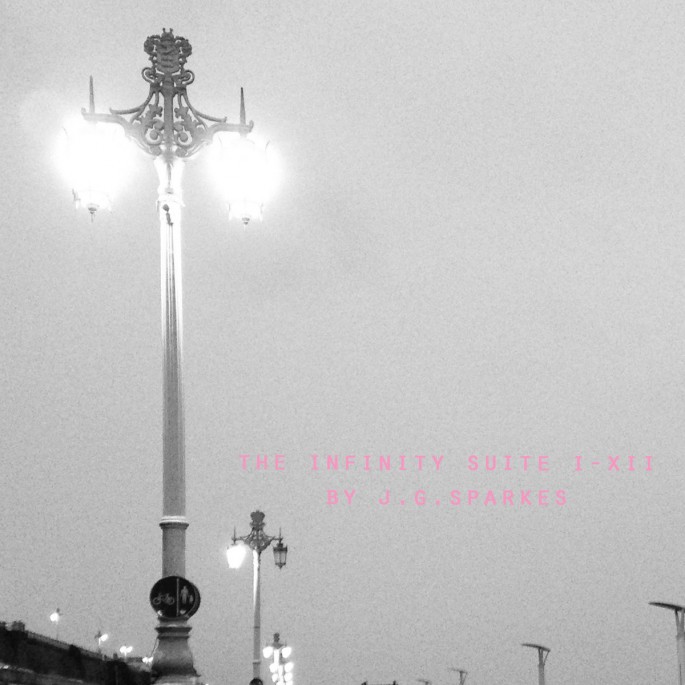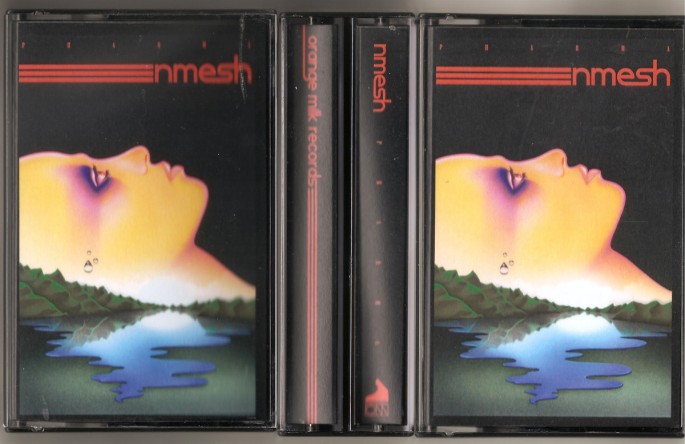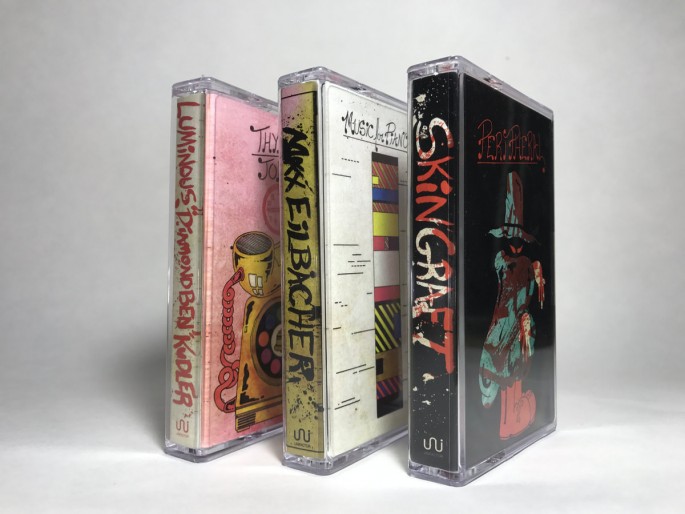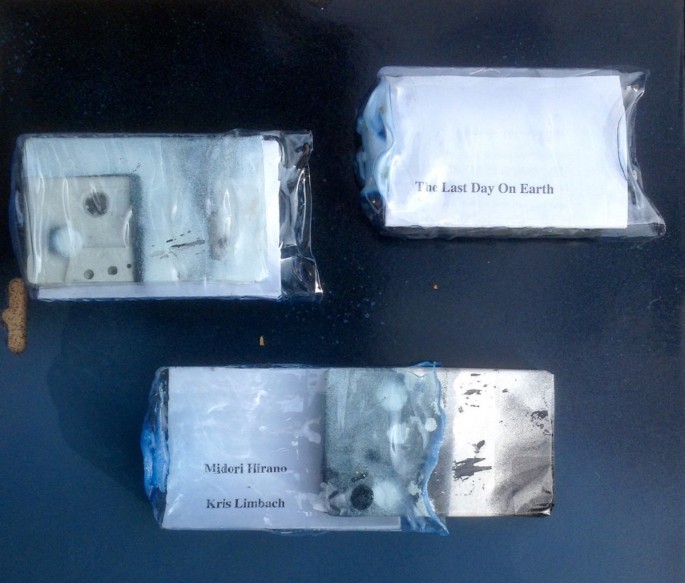J.G. Sparkes – The Infinity Suite I-XII
9.29.17 by Ryan Masteller
Old Thanos really needs to get his hands on those Infinity Stones for some reason, doesn’t he? Look, I’m not a loser, I don’t read comic books like those nerds, I get all my breaking Avengers-related news from the big screen like a normal person. That and through the sweet aural delivery system of cassette tapes. So when I heard that J.G. Sparkes had released an album-length paean to the Infinity Stones, I pretty nearly shat my trousers with gleeful abandon. I didn’t even have to go to my local Cineplex for this information upload, it was delivered straight to my door!
About thirty seconds into “The Infinity Suite I-XII,” I realized that old Thanos and his stones weren’t going to show up at all, and I stormed out of my listening closet with barely a shred of patience or dignity behind my beet-red visage. After I calmed myself with a gallon of milk (kids, drink as much milk as fast as you can always!), I popped my headphones back on, newly open to the actual experiences J.G. Sparkes had in store for me. And what experiences they were! I can’t imagine a more appropriate approximation of the infinite than this tape, as the Stockholm-based sound artist crafts twelve passages to the stages of life and beyond using only his imagination, some instruments, and samples. Just like our forefathers drew up the blueprints in holy scrolls, Sparkes attempts to make sense of life on this planet and its current manifestation in all its imperfect glory (and, uh, all the other not-glory, in fact really horrible, stuff) through textural ambient meditations. He covers birth, self-realization, melancholy, and the end, even utilizing a growling animal on “XI” before ending on the appropriately titled “XII (tomb planet),” one of two tracks to have a title beyond the roman numeral. (The other is “IV [are you happy?],” and the answer, judging from the defeated sigh of the questioner following each sampled query, is no.)
Upon recovering from my trancelike state following the click of the play button as auto shutoff popped it back into its default upright position, I realized that paying attention even one tiny second longer to the exploits of the Avengers was a fool’s errand. Who cares about bickering superlosers when the infinite of existence beckons? That’s where I’m going to direct my focus from now on.
Buy tapes from Do You Dream of Noise?, which is in Swedish, so…. good luck?





